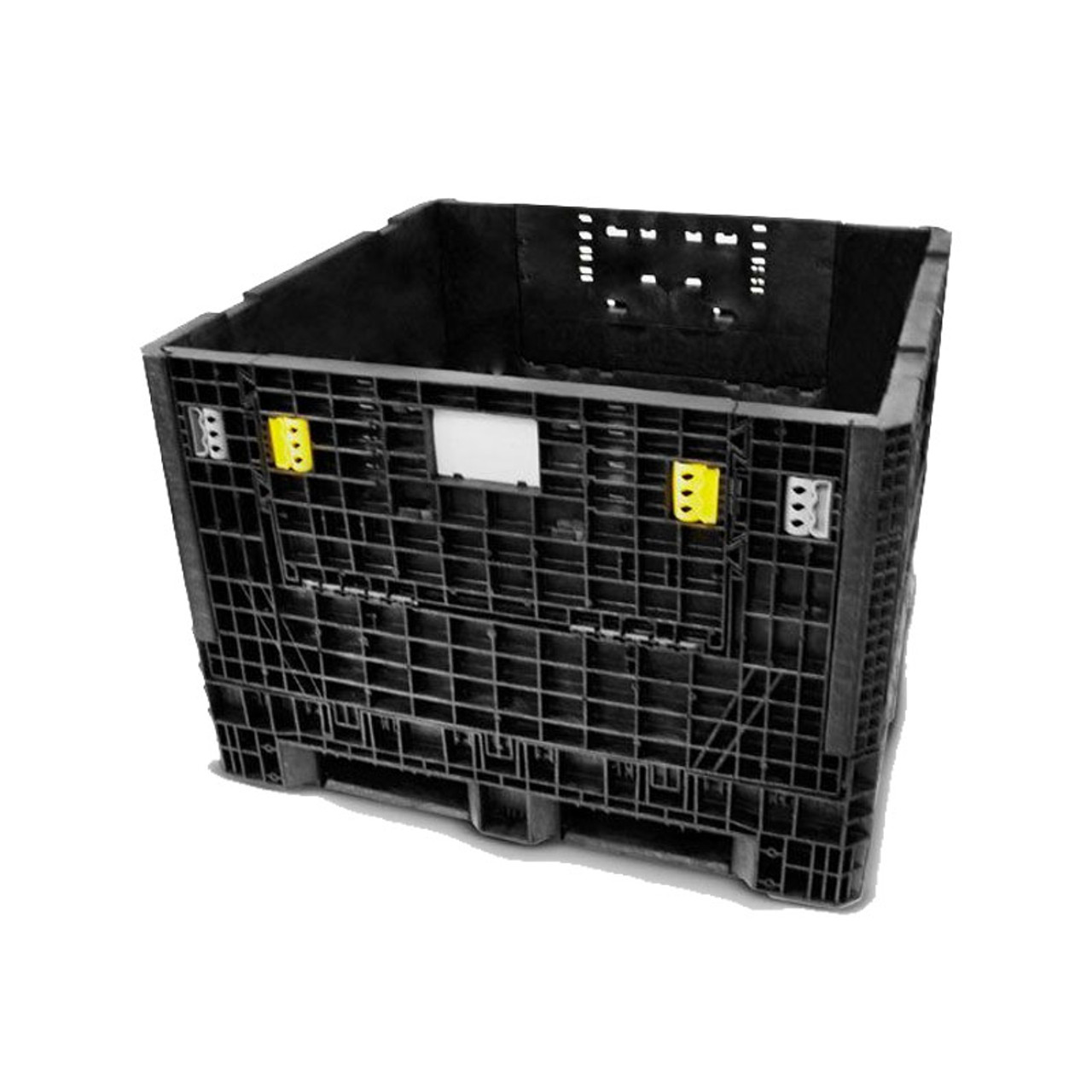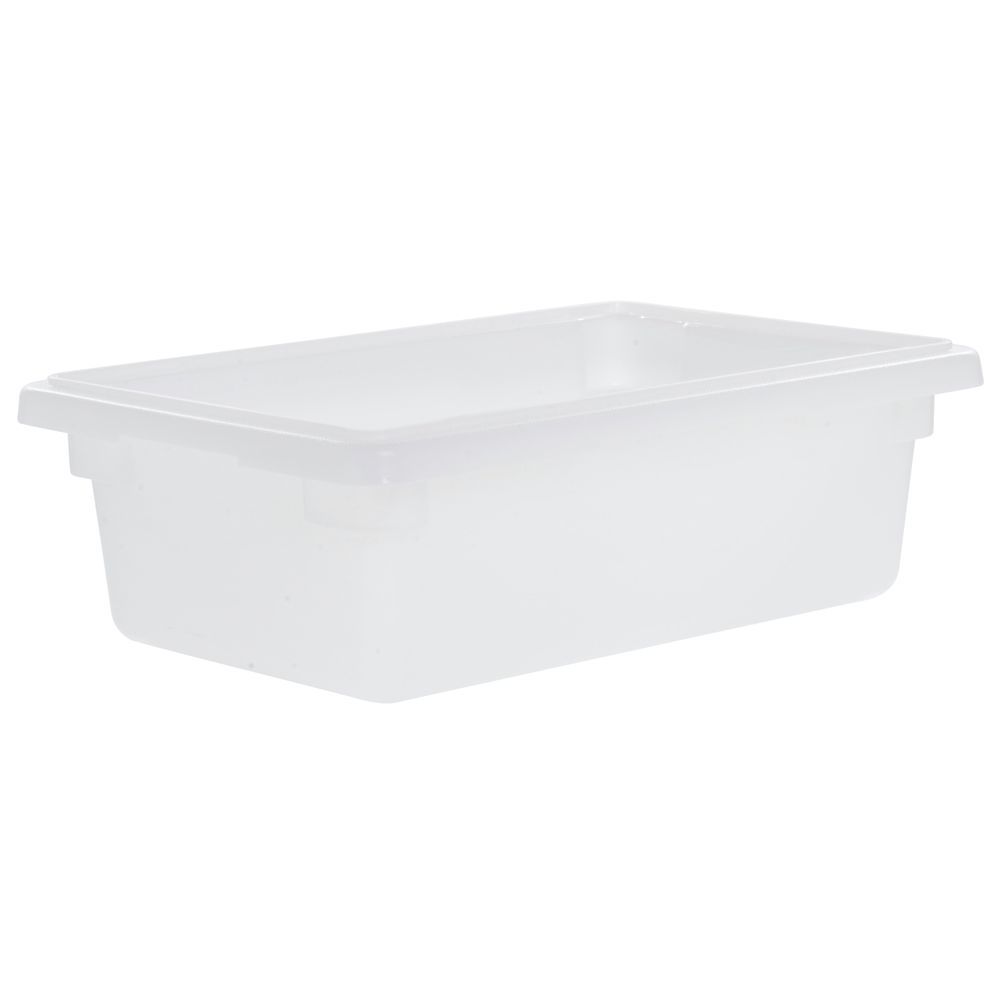Discover how reliable Bulk Plastic Containers can enhance your storage solutions
Wiki Article
The Role of Bulk Plastic Containers in Effective Recycling Practices and Sustainability
Mass plastic containers are essential to contemporary reusing efforts. Their layout boosts the effectiveness of product collection and transport, adding to sustainability goals. These containers not only optimize area however also aid in keeping an eye on contamination levels. Their implementation is not without difficulties. Understanding the complete range of their impact reveals a complex connection between logistics and ecological duty that requires more expedition.Comprehending Bulk Plastic Containers
Bulk plastic containers function as a crucial component in various industries, promoting the storage and transport of goods. These containers are normally made from robust materials such as high-density polyethylene (HDPE) or polypropylene, which supply toughness and resistance to ecological aspects. Their style frequently includes features like stackability and modularity, enabling for effective use room during both storage space and transit.Industries such as agriculture, food handling, and manufacturing frequently make use of mass plastic containers as a result of their light-weight nature and simplicity of handling. The containers are available in various dimensions and setups, catering to the certain needs of different products. Their convenience extends beyond plain capability; they can additionally be customized with covers, manages, and classifying options to boost usability - plastic bulk containers. Because of this, mass plastic containers play an essential function in enhancing logistics and supply chain procedures throughout multiple markets, therefore contributing to total effectiveness and cost-effectiveness
Benefits of Using Bulk Plastic Containers in Recycling
When organizations prioritize reusing initiatives, the usage of mass plastic containers greatly boosts the effectiveness of the procedure. These containers are designed to enhance space, enabling the storage and transportation of bigger quantities of recyclable products. This results in less journeys to reusing centers, consequently decreasing fuel usage and connected emissions.Furthermore, mass plastic containers are resilient and immune to different environmental elements, making certain that products stay safeguarded throughout handling and transportation. Their light-weight style better adds to reduce transport costs.
Furthermore, the harmony of these containers assists in better sorting and handling of recyclable materials, which can improve overall recycling prices - bulk plastic containers for sale. Organizations that take on bulk plastic containers also demonstrate a dedication to sustainability, positively influencing their brand name image. Ultimately, these benefits not just improve recycling methods but additionally add to more comprehensive environmental goals
Just How Mass Plastic Containers Facilitate Product Collection
Efficient product collection is significantly enhanced by the use bulk plastic containers, as they provide a organized and effective service for collecting recyclable items. These containers are created to accommodate large quantities of products, which simplifies the sorting and storage space process. Their stackable layout makes best use of room application, making it less complicated for centers to organize recyclables without clutter.Additionally, bulk plastic containers are long lasting and weather-resistant, enabling outside placement without degradation. This resilience assures that materials stay protected till they are collected for handling.

The uniformity in shapes and size of these containers promotes standardization throughout collection factors, enabling much better tracking of recyclable volumes. Their clear nature permits for easy visibility of components, aiding in the tracking of contamination levels and guaranteeing that only ideal products are collected. On the whole, mass plastic containers play a crucial function in simplifying the material collection process, thus promoting reliable recycling methods.
Transportation Effectiveness and Environmental Influence
Transportation performance plays a necessary role in the recycling procedure, particularly with the optimization of load capacity in mass plastic containers. By making the most of the quantity of material delivered, business can substantially reduce the variety of trips called for, thus decreasing their carbon footprint. This technique not only enhances functional effectiveness however additionally adds to more sustainable ecological practices.
Maximizing Tons Capability
Maximizing tons capacity is commonly ignored, it plays an essential duty in enhancing transport efficiency and reducing ecological influence in recycling techniques. By maximizing the volume that mass plastic containers can hold, reusing operations can minimize the number of trips required for transportation. This not only reduces fuel usage but additionally reduces the wear and tear on cars. Efficient tons management allows facilities to make use of space successfully, making certain that each transport cycle is as effective as possible. Furthermore, well-optimized loads can lead to far better settlements with logistics providers, possibly lowering overall expenses. Ultimately, enhancing lots capability adds to a more sustainable recycling system by cultivating effective source use and lessening waste generated during transport.Minimizing Carbon Footprint
As recycling operations venture to decrease their environmental impact, decreasing the carbon footprint connected with transportation becomes a critical objective. Bulk plastic containers play a crucial duty in achieving this purpose by boosting tons performance and optimizing logistics. Their light-weight yet durable layout allows for optimum cargo space application, lowering the variety of journeys required to transfer products. By consolidating shipments, recycling facilities can reduce gas intake and greenhouse gas exhausts. Additionally, tactically locating recycling centers lessens transportation ranges, in addition decreasing carbon results. Utilizing fuel-efficient automobiles and different energy resources enhances general sustainability. By incorporating these practices, the reusing industry can substantially diminish its carbon impact, adding to a more lasting future.Obstacles in making use of Mass Plastic Containers

Contamination Problems
Contamination issues represent a significant challenge in the effective usage of bulk plastic containers within recycling techniques. These containers often accumulate deposits from previous components, bring about combined materials that can hinder the reusing process. Contaminants such as food waste, chemicals, or non-recyclable products can compromise visite site the honesty of the whole set, leading to raised disposal prices and lowered reusing rates. In addition, inappropriate cleansing or sorting can exacerbate these problems, making it challenging for reusing facilities to process materials efficiently. The existence of pollutants not just influences the high quality of recycled products but additionally weakens the total sustainability initiatives targeted at minimizing plastic waste. Addressing these contamination difficulties is critical for improving the efficacy of bulk plastic container recycling.Recycling Framework Limitations
Inadequacy in reusing infrastructure poses considerable obstacles for the effective management of mass plastic containers. Numerous recycling facilities do not have the capability to refine big volumes of these containers successfully, leading to increased expenses and delays. Poor sorting modern technologies usually lead to contamination, as bulk containers may be blended with various other materials, complicating the recycling procedure. Limited transport alternatives likewise impede the movement of bulk plastic containers to proper reusing facilities, bring about boosted garbage dump waste. Furthermore, an absence of standardized protocols for bulk container recycling creates complication amongst customers and services, further making complex efforts to advertise sustainability. Addressing these infrastructure restrictions is necessary to improve reusing techniques and optimize the potential of mass plastic containers in a round economic situation.Ideal Practices for Carrying Out Bulk Plastic Containers
When organizations consider carrying out bulk plastic containers in their recycling practices, they need to focus on a strategic method that boosts effectiveness and lowers contamination dangers. Initially, selecting the suitable container size and type is important to accommodate the volume of products being processed. Organizations should likewise develop clear labeling and signage to assist individuals on correct disposal approaches, minimizing complication and errors. Normal training sessions for team can further enhance these practices, making sure every person comprehends their roles in maintaining reusing integrity.
In addition, organizations ought to apply a regular upkeep timetable to examine and clean containers, protecting against the accumulation of impurities. Partnering with neighborhood recycling facilities can likewise simplify the collection process, making certain that products are effectively processed. Lastly, organizations should keep an eye on and assess their reusing metrics, using this information to fine-tune methods over time and promote constant enhancement in their sustainability initiatives.
The Future of Mass Plastic Containers in Sustainable Practices
As organizations significantly focus on sustainability, the function of mass plastic containers in reusing methods is set to evolve significantly. Advancements in products scientific research are causing the growth of biodegradable and recyclable alternatives, improving the environmental benefits of bulk plastic containers. Additionally, the implementation of closed-loop systems will allow for less complicated collection and repurposing of these containers, minimizing waste and source consumption.Technological innovations, such as smart monitoring systems, will certainly enable firms to keep an eye on the lifecycle of bulk containers, improving effectiveness in reusing processes. As consumer demand for lasting techniques expands, businesses will likely embrace bulk plastic containers made for reuse and long-lasting value. Furthermore, collaboration in between federal governments and markets will promote the establishment of standardized recycling procedures, making sure that bulk containers are efficiently incorporated right into wider sustainability campaigns. Generally, the future of bulk plastic containers shows up appealing, with significant possibility for contributing to a round economic situation.
Frequently Asked Concerns
How Are Mass Plastic Containers Made and What Materials Are Utilized?
Mass plastic containers are normally made from high-density polyethylene (HDPE) or polypropylene (PP) These products are refined with injection molding or strike molding techniques, causing sturdy, try this web-site light-weight containers appropriate for numerous storage space and transport demands.
Can Mass Plastic Containers Be Reused Numerous Times Before Recycling?
Yes, bulk plastic containers can be recycled numerous times before recycling. Their longevity and design permit repeated use in various applications, advertising sustainability and source performance Going Here while reducing the requirement for brand-new containers.
What Accreditations Exist for Mass Plastic Containers in Recycling?
Numerous certifications for bulk plastic containers include the Recycling Collaboration's certification, the Cradle to Cradle Qualified ™ requirement, and the Lasting Product packaging Union's guidelines, making sure containers satisfy specific ecological and recyclability requirements for efficient recycling.Exactly How Do Mass Plastic Containers Contrast to Other Recycling Storage Space Options?
Mass plastic containers supply higher resilience and ability contrasted to various other reusing storage options, decreasing the risk of contamination and assisting in efficient transport. Their layout supports better organization, improving total efficiency in reusing operations.What Is the Lifespan of a Bulk Plastic Container in Recycling Processes?
The life-span of a bulk plastic container in reusing procedures generally varies from 5 to 10 years, depending on use, material high quality, and ecological problems, permitting multiple cycles of usage prior to eventual disposal or recycling.When companies focus on reusing initiatives, the use of mass plastic containers considerably improves the efficiency of the procedure. Transport effectiveness plays an important duty in the recycling process, specifically via the optimization of load capability in bulk plastic containers. The use of mass plastic containers in reusing methods deals with significant challenges, specifically worrying contamination problems and constraints within reusing infrastructure. Contamination issues represent a considerable obstacle in the efficient use of mass plastic containers within reusing techniques. When companies take into consideration implementing bulk plastic containers in their recycling techniques, they must prioritize a calculated approach that boosts efficiency and reduces contamination threats.
Report this wiki page